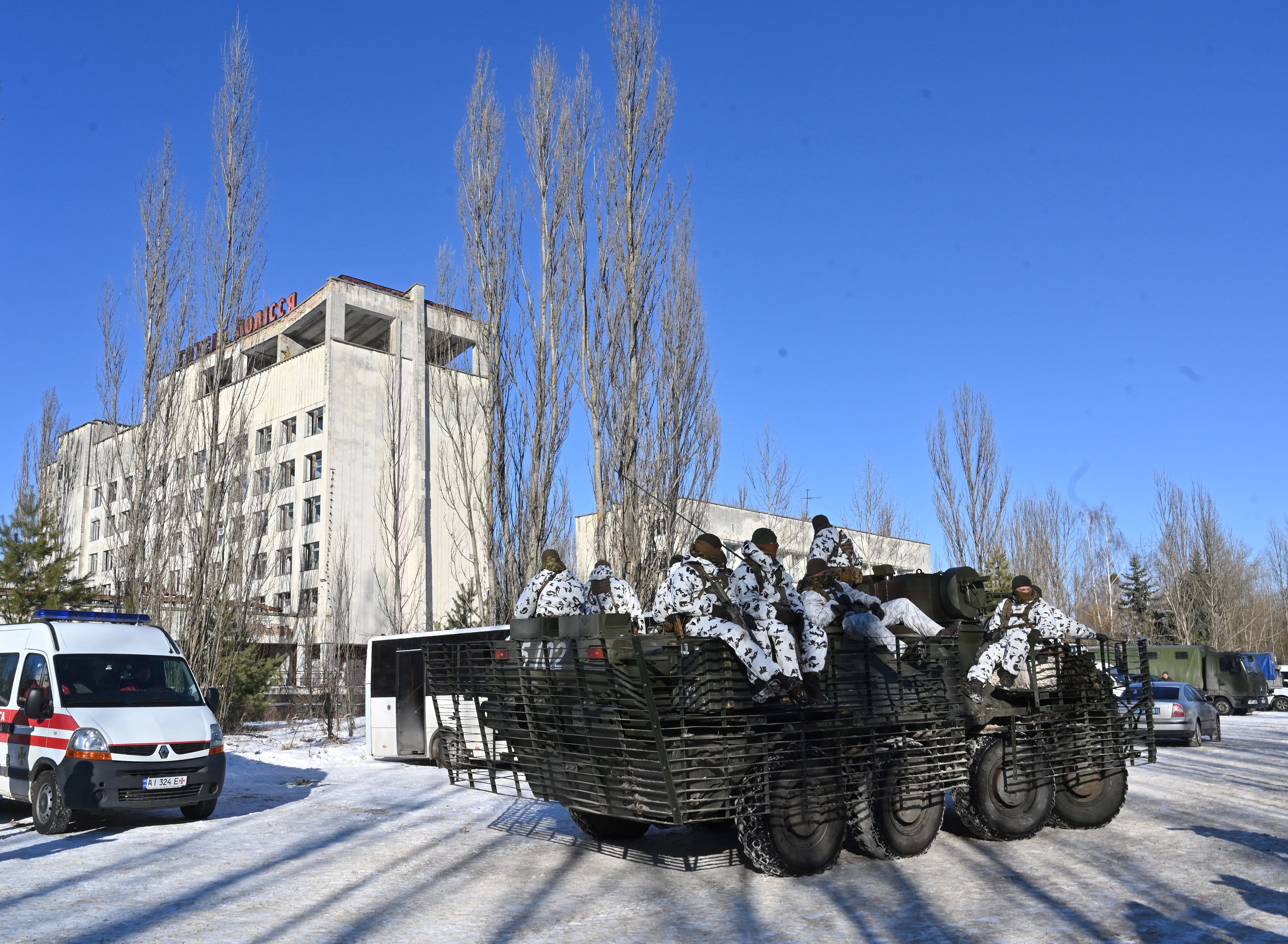The U.N.’s nuclear watchdog on Wednesday warned Russia’s onslaught of Ukraine is raising the risk of nuclear accidents, calling for restraint from all actions that could jeopardize the safe operations of Ukraine’s nuclear facilities.
It comes as Russia’s war with Ukraine enters its seventh day, with fighting raging across the country.
The International Atomic Energy Agency said Russia’s invasion of Ukraine marks the first time a military conflict has taken place amidst the facilities of a large and established nuclear power program — which in this case includes the site of the world’s worst nuclear disaster at the Chornobyl Nuclear Power Plant in 1986.
“The situation in Ukraine is unprecedented and I continue to be gravely concerned,” IAEA Director General Rafael Mariano Grossi said in an introductory statement to the 35-nation Board of Governors.
“The safety and security of nuclear facilities, and nuclear and other radioactive material, in Ukraine must under no circumstances be endangered.”
Grossi repeated his call for restraint from all measures that could disrupt the security of nuclear and other radioactive material, warning that “any such incident could have severe consequences, aggravating human suffering and causing environmental harm.”
The U.N.’s nuclear watchdog said Ukraine’s four nuclear power plants continued to operate normally but emphasized that there was “nothing normal” about the extraordinary circumstances under which those working at the plants were managing to keep the reactors that produce half of Ukraine’s electricity operating.
The IAEA’s Grossi said the agency had been informed by Russia on Tuesday that its troops had taken control of the territory around Ukraine’s Zaporizhzhya Nuclear Power Plant.
Situated in the southeast of the country, the Zaporizhzhya Nuclear Power Plant is Ukraine’s largest and houses six of its 15 operational nuclear power reactors.
Last week, Ukraine’s nuclear agency reported radiation at the defunct Chornobyl nuclear power plant had exceeded control levels after Russian troops seized the area. This was thought to be due to the movement of a large number of heavy military machinery disturbing the soil.
Grossi said the IAEA had determined that radiation levels at the site remained low enough not to pose a hazard to the public.
“A nuclear accident can have a serious impact beyond the borders of the country in which it occurs and the world is relying on the IAEA to keep it informed with accurate and timely information,” Grossi said.
Therefore, it was crucial, Grossi said, that the IAEA remain able to communicate with Ukraine’s regulator about the country’s nuclear security.
“This is particularly critical during an armed conflict, which heightens the risk of nuclear accidents, and makes the response more difficult.”
‘Potentially severe consequences’
The U.N.’s nuclear watchdog said the State Nuclear Regulatory Inspectorate of Ukraine had informed the agency on Sunday that Russian missiles had hit the site of a radioactive waste disposal facility in the capital city of Kyiv. There were no reports of damage to the building or any signs of a radioactive release, Grossi said.
This came one day after Ukraine’s regulator said an electrical transformer at a similar disposal facility near the northeastern city of Kharkiv had been damaged, Grossi continued, noting this incident also occurred without any signs of radioactive release.
“The two incidents highlight the risk that facilities with radioactive material may suffer damage during the armed conflict, with potentially severe consequences,” Grossi said.
The IAEA called on all member states, which includes Russia, to uphold international law and to abide by a 2009 resolution that states “any armed attack on and threat against nuclear facilities devoted to peaceful purposes constitutes a violation of the principles of the United Nations Charter, international law and the Statute of the Agency.”
In closing out his opening address to the IAEA Board of Governors, Grossi said: “Let me end by saying this: the best action to ensure the safety and security of Ukraine’s nuclear facilities and its people would be for this armed conflict to end now.”
